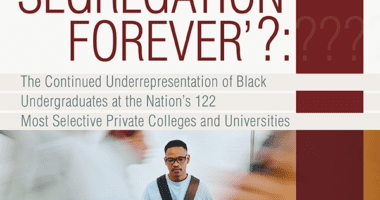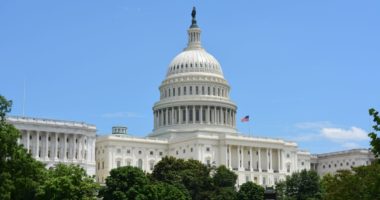Colleges, Take Notice: Your Federal Tax Breaks May Be Ending Soon
Six years ago, Sen. Chuck Grassley, R-Iowa, put wealthy colleges on notice: If they didn’t start doing a better job on college affordability, their tax-exempt status could be legislatively withdrawn. Sure enough, there was a storm of protest by elite colleges and their lobbyists. But a funny thing happened.
Shortly after Grassley’s threat, a bunch of colleges started rushing to expand their financial aid programs. With prideful chest-thumping, many started to offer “no-loan” promises to students from working-class and low-income families. Many went even further up the income scale and guaranteed middle-income students that their student loan debt would be capped. In fact, today more than 50 colleges and universities, ranging from wealthy public institutions like the University of North Carolina at Chapel Hill to those with very small endowments like Appalachian State University, maintain no-loan guarantees. They deserve applause. Loud applause.
Unfortunately with Grassley’s pressure off, some have started backing away from those promises (*cough* University of Virginia *cough*), and we think it’s time to put the pressure back on.
Last week, Ed Trust joined three other organizations to call on Congress to adopt new minimum college access and completion eligibility criteria for institutions that wish to receive tax breaks from the federal government.
It’s one of many proposals made by the Consortium for Higher Education Tax Reform, funded by the Bill & Melinda Gates Foundation and designed to ensure that tax subsidies for higher education are targeted and advance national goals of college affordability, access, and completion. And it’s tougher than Grassley was originally, because the coalition of think tanks and advocacy groups is calling for colleges to meet minimum standards on low-income student access, and separately, minimum college completion rate standards to tap federal tax benefits.
We think linking tax breaks for higher education institutions to their performance on college access and completion is a powerful way to hold colleges accountable — and one that is long overdue. Inadequate performance on college access — as measured by Pell Grant student enrollment — suggests an institution is not advancing a key mission of higher education, while inadequate performance on college completion — as measured by at least six-year graduation rates for four-year schools — suggests a poor choice for a sizable federal investment.
By virtue of their nonprofit status, colleges and universities receive an array of tax benefits. They’re exempt from income taxes, meaning they don’t have to pay taxes on revenue-generating items like their endowments or athletic events. They’re exempt from property taxes. They can access tax-exempt bond financing for new construction projects. They can receive tax-deductible charitable donations.
The original intent was noble. The federal government wanted to support the educational and charitable purposes of universities and colleges — teaching, research, and public service — that are critical to the overall well-being of a democratic society.
But are colleges that fail to support low-income student access serving the public? What about those that fail to give students a reasonable chance of graduating with a degree? Are the benefits these colleges provide to society commensurate with the benefits they receive from the federal tax code? Isn’t there some minimum level of performance on fundamental public service missions that should be set as a bar for tax-based aid?
We think so. Despite countless anecdotes of success and a widespread belief in the overall quality of American higher education, the outcomes suggest otherwise. Only 1 in 9 young adults from families earning less than $33,000 attain a degree by age 24. Nearly half of all college students don’t graduate within six years of initial enrollment, never mind four. Even those who do complete, a frightening proportion do so without having gained the skills or knowledge to get a job to support their financial investment.
Over the next few months, our consortium will engage in extensive research and analysis to develop the details of this new minimum eligibility standard recommendation, including suggested eligibility demarcations. In the meantime, colleges should take notice once again that their continued ability to reap federal tax benefits unquestioned may soon be coming to an end.









